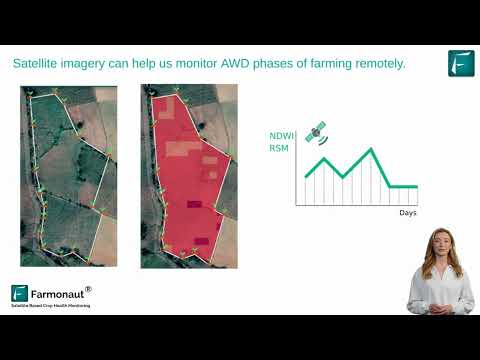Georgia’s New Immigration Legislation: Revolutionizing the State’s Workforce through Legal Guest Worker Programs
“Georgia’s new immigration legislation aims to address workforce shortages through a state work visa program for temporary foreign workers.”
In recent years, the state of Georgia has been grappling with a significant workforce shortage across various sectors. To address this pressing issue, lawmakers have proposed an innovative solution that could potentially reshape the state’s approach to immigration and labor management. House Bill 82, introduced by Republican Representative Matt Reeves of Duluth, aims to create a state-sponsored guest worker program that could revolutionize Georgia’s workforce landscape.
In this comprehensive analysis, we will delve into the intricacies of this proposed legislation, its potential impact on Georgia’s economy, and the broader implications for immigration reform in the United States. As we explore this topic, we’ll examine the various perspectives surrounding this controversial yet potentially transformative initiative.
Understanding Georgia’s Proposed Guest Worker Program
At its core, House Bill 82 seeks to establish a legal pathway for temporary foreign workers to fill employment vacancies in Georgia. This state work visa program represents a departure from traditional immigration policies, focusing on incentivizing legal immigration rather than solely enforcing punitive measures against unauthorized migrants.
The proposed legislation aims to create a mechanism for Georgia businesses to communicate their labor market demand directly to the federal government. By doing so, the state hopes to streamline the process of bringing in temporary foreign workers to address specific workforce shortages across various industries.

Key Features of the Proposed Legislation
- State-Federal Cooperation: The program would facilitate better communication between Georgia’s businesses and federal immigration authorities.
- Cross-Sector Applicability: Unlike existing programs like H-2A for agricultural workers, this initiative would cover all industry sectors experiencing labor shortages.
- Legal Pathway Emphasis: The bill focuses on creating legal immigration pathways, potentially reducing reliance on unauthorized labor.
- Eligibility Restrictions: Participants must not have violated immigration or criminal laws, ensuring a vetted workforce.
To better understand the nuances of this proposed program, let’s examine a comparative analysis of its key aspects:
| Program Feature | Current Situation | Proposed Change | Potential Impact |
|---|---|---|---|
| Visa Type | Federal work visas (e.g., H-2A, H-1B) | State-sponsored work visa | Increased flexibility in addressing state-specific labor needs |
| Worker Quota | Set by federal government | Determined by state labor market demand | More accurate reflection of Georgia’s workforce requirements |
| Eligible Sectors | Limited to specific industries | All sectors experiencing labor shortages | Broader economic impact across diverse industries |
| Application Process | Managed entirely by federal agencies | State involvement in assessing and communicating needs | Potentially faster and more efficient processing |
| Duration of Stay | Varies by visa type | To be determined by state program | Possibility of more flexible stay durations based on labor needs |
| Employer Requirements | Set by federal regulations | Additional state-level oversight | Enhanced accountability and worker protection |
| Worker Rights | Federally mandated | State and federal protections | Potentially stronger safeguards for guest workers |
The Context of Georgia’s Labor Market
To fully appreciate the significance of this proposed legislation, it’s crucial to understand the current state of Georgia’s labor market. The Peach State has been experiencing a persistent workforce shortage across multiple sectors, including agriculture, healthcare, technology, and manufacturing.
According to recent data, Georgia’s unemployment rate has remained consistently low, hovering around 3.5% as of 2023. While this figure might seem positive at first glance, it actually presents challenges for businesses struggling to find qualified workers to fill open positions.
Les Schneider, an Atlanta employment attorney collaborating with Rep. Reeves on the bill, emphasized the broad applicability of the proposed program: “Not just tree planters but nurses in rural Georgia, doctors in rural Georgia, IT people — people who can fill jobs in this state that we have a labor shortage for.”
Potential Benefits of the Guest Worker Program
Proponents of House Bill 82 argue that the proposed guest worker program could bring several benefits to Georgia’s economy and society:
- Addressing Labor Shortages: By providing a legal pathway for temporary foreign workers, the program could help fill critical gaps in Georgia’s workforce.
- Economic Growth: A more robust and flexible labor force could stimulate economic growth across various sectors.
- Reduced Reliance on Unauthorized Labor: The program aims to create incentives for businesses to utilize legal channels for hiring foreign workers.
- Enhanced State Control: Georgia would have more say in determining its labor needs and communicating them to federal authorities.
- Potential Pathway to Citizenship: Rep. Reeves suggests that program participants who later apply for permanent citizenship might receive favorable consideration.
“The proposed guest worker program in Georgia could potentially impact multiple sectors, reshaping the state’s approach to immigration and labor.”
Concerns and Criticisms
Despite its potential benefits, the proposed legislation has faced criticism from various quarters:
- Impact on Local Workers: Some labor groups worry that the program could negatively affect job opportunities and wages for Georgia residents.
- Exclusion of Existing Unauthorized Immigrants: Critics argue that the bill fails to address the status of unauthorized immigrants already living and working in Georgia.
- Oversight and Enforcement Challenges: There are concerns about the state’s capacity to effectively manage and regulate such a program.
- Federal-State Jurisdictional Issues: Questions remain about how this state-level program would interact with federal immigration laws and policies.

The Broader Context of Immigration Reform
Georgia’s proposed guest worker program doesn’t exist in a vacuum. It’s part of a larger national conversation about immigration reform and workforce management. Several other states, including Utah and Colorado, have explored similar state-sponsored guest worker initiatives in recent years.
At the federal level, Senator Ron Johnson of Wisconsin has proposed legislation that would allow states to implement their own work visa programs under federal oversight. This aligns with Georgia’s efforts to gain more control over its immigration and labor policies.
However, it’s important to note that immigration policy remains primarily a federal responsibility. Any state-level program would need to navigate complex legal and constitutional issues to ensure compliance with federal law.
Potential Impact on Georgia’s Agriculture Sector
While the proposed guest worker program would apply to all industries, its impact on Georgia’s vital agriculture sector could be particularly significant. Agriculture has long relied on seasonal foreign labor, often through the federal H-2A program.
A state-sponsored program could potentially offer more flexibility and responsiveness to the specific needs of Georgia’s farmers. This could include:
- Faster processing times for worker applications
- Better alignment with local planting and harvesting schedules
- Increased ability to retain experienced workers across multiple seasons
For farmers struggling with labor shortages, such a program could provide much-needed relief and help ensure the stability of Georgia’s agricultural output.
The Role of Technology in Workforce Management
As Georgia explores innovative approaches to workforce management, it’s worth considering the role that technology can play in optimizing labor resources and improving agricultural productivity. Advanced agricultural technology solutions, such as those offered by companies like Farmonaut, can complement workforce initiatives by enhancing efficiency and productivity in the farming sector.
Farmonaut provides satellite-based farm management solutions that can help farmers make data-driven decisions about crop health, resource allocation, and overall farm management. While not directly related to immigration policy, such technologies can help address some of the underlying challenges that drive the need for additional agricultural labor.
Some key features of Farmonaut’s platform include:
- Real-time crop health monitoring using satellite imagery
- AI-driven advisory systems for optimized farm management
- Resource management tools to improve efficiency
- Blockchain-based traceability for enhanced supply chain transparency
By leveraging such technologies, farmers can potentially reduce their reliance on manual labor for certain tasks, allowing them to allocate human resources more strategically.
Legal and Constitutional Considerations
The implementation of a state-sponsored guest worker program raises several legal and constitutional questions that would need to be addressed:
- Federal Preemption: Immigration law is primarily a federal domain. Georgia’s program would need to navigate potential conflicts with federal authority.
- Equal Protection: The program must ensure that it doesn’t discriminate against workers based on national origin or other protected characteristics.
- Labor Laws: Any guest worker program would need to comply with both state and federal labor laws, ensuring fair treatment and protection for all workers.
- Interstate Commerce: The program’s impact on interstate commerce could potentially invite scrutiny under the Commerce Clause of the U.S. Constitution.
These legal considerations underscore the complexity of implementing such a program and the need for careful legislative crafting and potential judicial review.
Economic Implications for Georgia
The proposed guest worker program could have far-reaching economic implications for Georgia:
- Increased Productivity: By addressing labor shortages, the program could boost productivity across multiple sectors.
- Tax Revenue: Legal guest workers would contribute to the state’s tax base, potentially increasing revenue for public services.
- Competitive Advantage: A more flexible labor market could make Georgia more attractive to businesses considering relocation or expansion.
- Rural Development: The program could help revitalize rural areas by providing needed workers for agricultural and other rural industries.
However, economists warn that the full economic impact would depend on various factors, including program implementation, federal cooperation, and broader economic conditions.
Social and Cultural Considerations
Beyond its economic implications, the proposed guest worker program raises important social and cultural questions:
- Community Integration: How will temporary workers be integrated into local communities?
- Cultural Exchange: The program could foster greater cultural diversity and exchange in Georgia’s communities.
- Family Separation: Policies would need to address the potential impact on workers’ families left behind in their home countries.
- Long-term Settlement: There’s a possibility that some temporary workers might seek to settle permanently in Georgia, raising questions about long-term integration and citizenship pathways.
These social factors highlight the need for comprehensive planning and community engagement in implementing any guest worker program.
The Role of Employers in the Proposed Program
Employers would play a crucial role in the success of Georgia’s proposed guest worker program. The legislation would likely require businesses to:
- Demonstrate a genuine need for foreign workers
- Provide fair wages and working conditions
- Ensure compliance with all relevant labor laws
- Participate in program oversight and reporting
For many businesses, particularly in sectors like agriculture, healthcare, and technology, the program could provide much-needed relief from chronic labor shortages. However, it would also come with new responsibilities and potential compliance challenges.
Comparative Analysis with Other State Initiatives
Georgia’s proposed guest worker program is not without precedent. Other states have explored similar initiatives, each with its own unique features and challenges:
- Utah: In 2011, Utah passed legislation creating a state guest worker program, though it was never implemented due to federal constraints.
- Colorado: The state has considered various proposals to address agricultural labor shortages through state-level initiatives.
- California: While not a state-sponsored program, California has implemented various policies to protect and integrate immigrant workers, including those in agriculture.
Georgia’s program, if implemented, would likely draw lessons from these earlier efforts while tailoring its approach to the specific needs of the state’s economy and workforce.
The Future of Immigration Reform in Georgia
The proposed guest worker program represents a significant shift in Georgia’s approach to immigration and labor policy. Whether or not House Bill 82 becomes law, it has already sparked important conversations about the future of work in the state and the role of immigration in addressing economic challenges.
As Georgia continues to grapple with these complex issues, it’s likely that we’ll see further policy innovations and debates. The outcome of this legislative effort could have far-reaching implications not just for Georgia, but for other states considering similar approaches to workforce management and immigration reform.
Conclusion: A Balancing Act for Georgia’s Future
Georgia’s proposed guest worker program represents a bold attempt to address workforce shortages and reshape the state’s approach to immigration. By focusing on legal pathways for temporary foreign workers, the legislation seeks to balance economic needs with regulatory oversight and worker protections.
As the debate continues, it’s clear that this initiative has the potential to significantly impact Georgia’s economy, social fabric, and position in the national immigration reform conversation. Whether it ultimately succeeds will depend on careful policy crafting, effective implementation, and the ability to navigate complex federal-state relationships.
For now, Georgia stands at a crossroads, poised to potentially lead the way in innovative state-level approaches to workforce management and immigration policy. The outcome of this legislative effort will be closely watched not just within the state, but across the nation, as other states grapple with similar challenges in an ever-evolving global economy.
FAQ Section
- Q: How would Georgia’s guest worker program differ from existing federal visa programs?
A: Georgia’s program would be state-sponsored, focusing on addressing specific labor needs within the state across all sectors, unlike federal programs which are often limited to certain industries. - Q: Would this program replace federal immigration policies?
A: No, it would work alongside federal policies, aiming to better communicate Georgia’s labor needs to federal authorities. - Q: How would the program ensure fair treatment of guest workers?
A: The legislation would likely include provisions for worker protections, fair wages, and compliance with both state and federal labor laws. - Q: Could guest workers eventually become permanent residents or citizens?
A: While the program focuses on temporary work, Rep. Reeves has suggested that participation could be viewed favorably in future citizenship applications. - Q: How might this program affect unauthorized immigrants already in Georgia?
A: The current proposal does not directly address unauthorized immigrants, focusing instead on creating new legal pathways for temporary workers.






